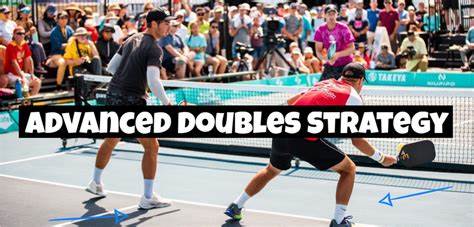If singles pickleball is a solo dance, doubles is a chaotic group performance where one wrong move can send everything tumbling—literally. Playing doubles isn’t just about hitting the ball; it’s about teamwork, coordination, and trying not to blame your partner when things go sideways. Whether you’re a seasoned player or a newbie who got roped into playing because “we need a fourth,” this guide will help you dominate the doubles court (and maybe even stay friends with your partner).
Step 1: Communication Is Key (And Also Hilarious)
Let’s start with the golden rule of doubles pickleball: talk to your partner. And I don’t mean small talk about the weather—I mean constant, clear communication about who’s hitting what. Because nothing is more awkward than two people watching a ball drop between them while whispering, “I thought you had it!”
What to Say on the Court:
- “Mine!” (For when you’re actually planning to hit the ball.)
- “Yours!” (For when you’re absolutely not planning to hit the ball.)
- “Out!” (For when the ball is going out, and you want to look like a genius.)
- “Great shot!” (For when your partner does something amazing and you want to keep them happy.)
What Not to Say:
- “What are you doing?!” (Even if it’s a fair question, it’s not going to help.)
- “I was waiting for you to hit it!” (This will not inspire confidence.)
- “Can we switch partners?” (Save this one for after the match.)
Pro Tip: If you’re both about to go for the same shot, yell “Mine!” with enough authority to make your partner back off. Bonus points if you throw in some dramatic hand gestures for emphasis.
Step 2: Know Your Roles (And Stick to Them)
In doubles, each player has a role, whether you realize it or not. Understanding and embracing your role can make all the difference between a coordinated attack and a comedy of errors.
Typical Roles in Doubles:
- The Baseline Basher: This player hangs back and handles deep shots. They’re like the goalie of the team—nothing gets past them.
- The Net Ninja: This player patrols the kitchen line, ready to pounce on any weak shot like a cat stalking a laser pointer.
- The Floater: The wild card who moves between the baseline and the net, depending on the situation.
- The Cheerleader: The emotional support player who shouts, “We’ve got this!” even when you clearly don’t.
Pro Tip: Talk with your partner before the game to decide who’s doing what. If you both try to be the Net Ninja, you’ll end up stepping on each other’s toes (literally).
Step 3: The All-Important Kitchen Line
In doubles pickleball, the kitchen line is sacred ground. Get there, stay there, and defend it like your life depends on it. Why? Because the team that controls the kitchen line controls the game.
Kitchen Line Strategies:
- Move up to the kitchen line as quickly as possible after the serve and return.
- Keep your paddle low and ready for dinks, volleys, and the occasional surprise smash.
- Stay side by side with your partner. If one of you is up at the net while the other is hanging back, your court coverage will look like a lopsided seesaw.
Pro Tip: If your partner is stuck in the backcourt, resist the urge to rush up alone. It’s called “doubles,” not “solo doubles.”
Step 4: Target Your Opponents (Strategically, Not Violently)
Winning at doubles isn’t just about hitting great shots—it’s about knowing where to hit them. Spoiler: you’re not just playing against two opponents; you’re playing against their weaknesses.
Where to Aim:
- The Backhand: Most players’ backhands are weaker than their forehands. Exploit this like a pickleball villain.
- The Middle: Hitting between your opponents causes confusion. Will they communicate effectively, or will they play an impromptu game of chicken?
- The Feet: A shot aimed at their toes is hard to return and, let’s be honest, kind of hilarious to watch.
Pro Tip: Avoid hitting to the Net Ninja unless you enjoy watching your best shot get obliterated.
Step 5: Play as a Team (Even When You Don’t Feel Like It)
Doubles is all about teamwork, which means you have to work with your partner—even if they’ve missed the last five shots in a row. (Deep breaths. You’re stronger than this.)
How to Be a Great Partner:
- Encourage them, even when they mess up. (“Nice try!” is your go-to phrase.)
- Cover for them if they’re out of position, but don’t make a big deal about it.
- High-five after every point, win or lose. It’s scientifically proven to boost morale (probably).
Pro Tip: If your partner keeps apologizing for their mistakes, tell them to stop. Unless they start hitting balls into the parking lot—then it’s fair game.
Step 6: Have Fun (But Dominate While Doing It)
At the end of the day, pickleball is supposed to be fun. Laugh at your mistakes, enjoy the rallies, and don’t take it too seriously—unless, of course, you’re winning. Then you can take it a little seriously.
How to Keep It Fun:
- Celebrate small victories, like hitting an amazing dink or successfully calling “Yours!” at the right time.
- Don’t sweat the score too much—every game is a chance to improve.
- Remind yourself (and your partner) that no matter what happens, you’re not the person who hit the ball into the next court.
Pro Tip: If things aren’t going well, make a joke to lighten the mood. “At least we’re consistent!” is always a crowd-pleaser.
Final Thoughts: Communicate, Coordinate, Dominate
Doubles pickleball is as much about teamwork as it is about skill. When you communicate clearly, embrace your roles, and cover each other’s weaknesses, you’ll be an unstoppable force on the court (or at least a mildly intimidating one).
So grab your partner, practice these strategies, and remember: no matter how badly you mess up, you can always blame it on the wind. Now get out there and dominate—preferably with a side of humor and a lot of high-fives!

